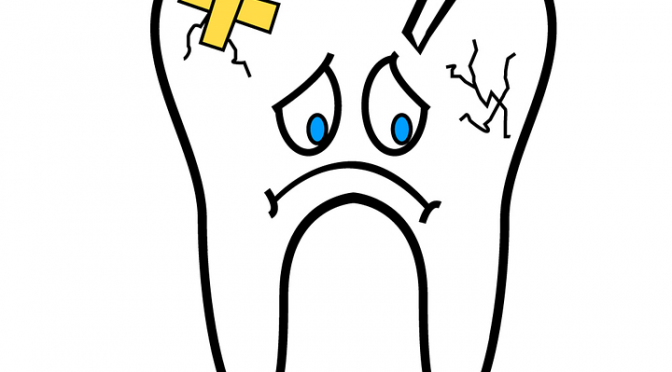What Should You Do If You Chip, Fracture or Break Your Tooth?

Our teeth are incredibly strong. In fact, the enamel surrounding our teeth is actually stronger than our bones, making it the hardest substance in the human body.
However, just like our bones can break and lose their strength, so can our teeth. Despite their natural strength, teeth can chip, crack and even break. This can happen as a result of biting down on something too hard, getting hit in the face or mouth, or from falling over and hitting your face and mouth. Cavities that weaken your teeth and old amalgam fillings that don’t offer enough support for your tooth’s remaining enamel can also result in chipped, cracked or broken teeth.
Broken or chipped teeth won’t always cause pain, however, if left unchecked the problem can worsen and cause severe pain and nerve damage. Discomfort and pain can also occur when nerve endings are exposed to the air or hot and cold food and drink.
Damaged teeth can cause consistent pain, or it might come and go, with the worst pain occurring when you try to eat.
If you have chipped, fractured or broken your tooth, what should you do?
Treatment Methods for Damaged Teeth
Regardless of the type of damage, always consult with your dentist to find out which treatment method is right for you. Here, we outline some common courses of action for each type of damage.
Tooth Fractures
A fractured tooth can’t be treated at home. A tooth fracture might only hurt when you eat or the temperature in your mouth changes, but if you’ve damaged the nerves or blood vessels in the tooth, it will most likely hurt all of the time. If you don’t feel pain when you bite down, but you do when you release the bite – there’s a good chance your tooth is cracked.
If the tooth only has a minor crack, your dentist might just lightly polish the area and smooth out any uneven spots. However, a cracked tooth that runs from the chewing surface all the way to the nerve will need to be repaired, most likely with filling material. You might also need a crown to prevent the crack from getting worse.
This treatment method can vary depending on the severity and positioning of the damage.
A Chipped Tooth
If the chip is big enough it can affect the function of your tooth’s nerve. This can cause pain and discomfort and tooth discolouration. If the tooth is in a visible section of your mouth, a root canal treatment could potentially repair the nerve damage, while a crown can restore its appearance.
If the chip is only minor, you might only require cosmetic work in the form of dental bonding or a veneer.
A Broken Tooth
If you’ve broken a tooth, you should book an appointment with your dentist as soon as possible. They will first determine whether the break is a result of a cavity or just an accident and will check to see if the tooth’s nerve is in danger. If the nerve is damaged, a root canal treatment might be required. In other instances, depending on the extent of the damage, the broken tooth might have to be removed.
Regardless of how your tooth has been damaged, get in contact with your dentist so they can assess the severity of the damage, and help get your teeth back to normal. You can call the team at Advanced Dental Centre on 08 8297 4777, or email us at admin@advanceddentalcentre.com.au.
Archives
- October 2018
- April 2018
- March 2018
- January 2018
- December 2017
- November 2017
- October 2017
- August 2017
- July 2017
- September 2016
- July 2016
- June 2016
- May 2016
- April 2016
- August 2015
- May 2015
- March 2015
Recent Posts
- Common Dental Problems In Adults
- A Sensitive Teeth Survival Guide
- Do You Suffer From Bad Breath?
- What is Sleep Apnea and How Can You Treat it?
- 4 Myths About Baby Teeth Busted







